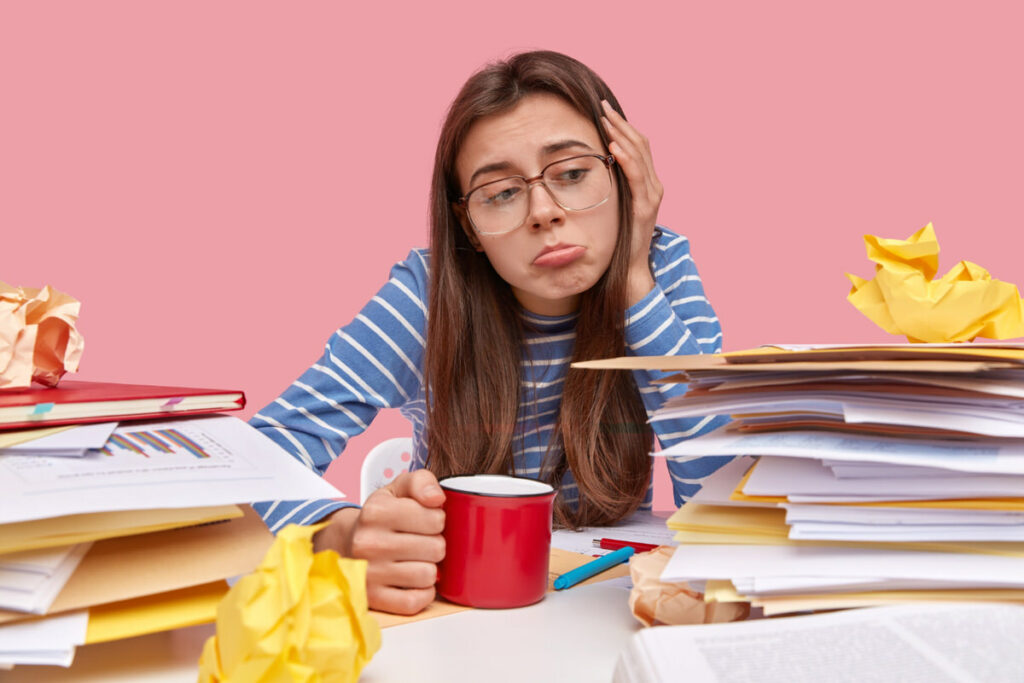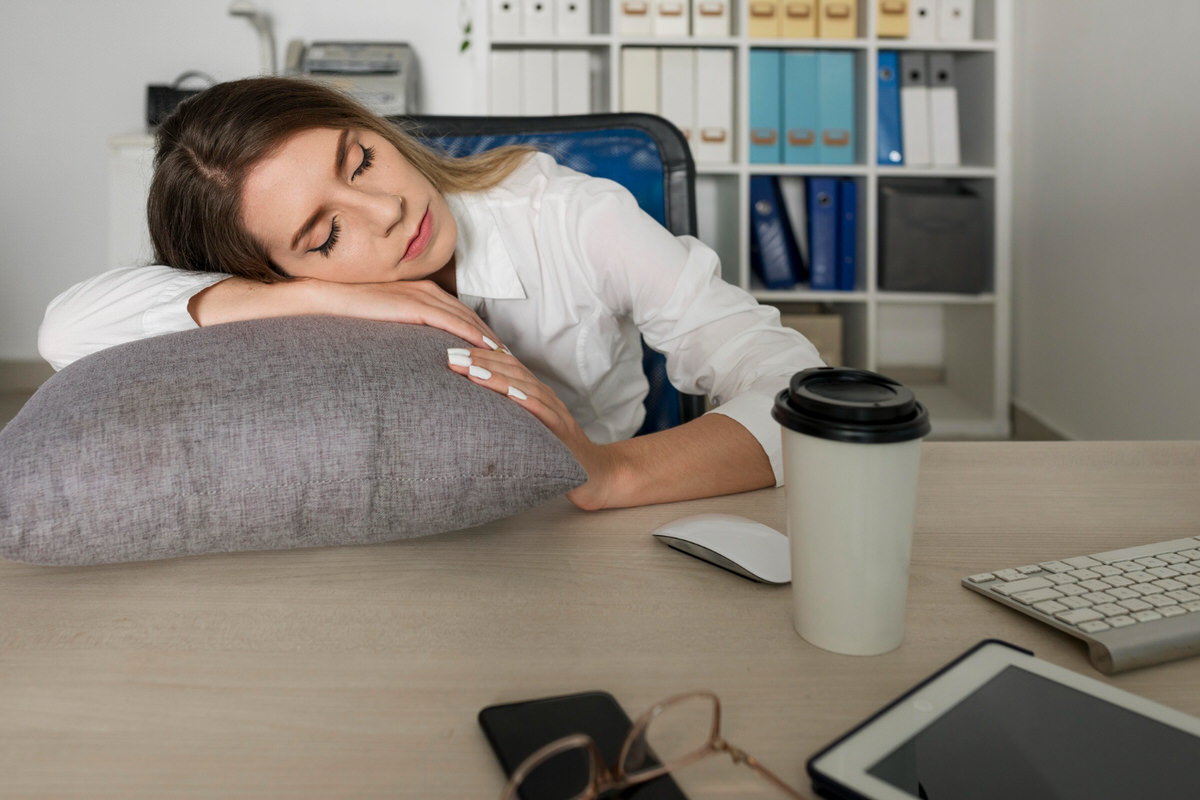Caffeine can be the right boost for autistic individuals who are hyperactive, as it makes them mellow. This might make them feel normal and calm and could also make them sleepy. Another reason for the sleepy feeling could be due to a combination of autism and ADHD. With ADHD, dopamine levels are lower, and caffeine helps bring them to the normal level, which could make them feel calm and sleepy. Look for signs and symptoms of ADHD. In the end, too much caffeine can be bad for health. Caffeine affects each person differently, so try to test if it’s a good fit for you after discussing it with your doctor.
For people with autism, it can be difficult in certain situations to feel active, as exhaustion and burnout are major parts that can create difficulties in their day-to-day functioning.
People tend to feel pressured by the social situation, and this sensory overload can create fatigue.
On the other hand, many autistic adults experience insomnia and struggle to sleep or get a good night’s sleep during the night.
They tend to experience circadian rhythm disorders, sleep apnea, restless legs syndrome, and more.
Be it feeling tired during the day or unable to sleep at night, there’s always a tug-of-war between sleep and feeling tired. Let’s take a look at what the role caffeine plays for autistic people.
Benefits of caffeine
Coffee does more than wake you up in the morning.

While it’s known that most of the US drink several cups of coffee daily due to its energizing effects, this beverage provides other benefits.
A few cups daily can provide benefits such as:
- Fights fatigue and increases energy levels
- Associated with decreasing the risk of type 2 diabetes
- Helps protect against certain neurodegenerative disorders, including Alzheimer’s disease and Parkinson’s disease
- Beneficial for weight management
- Lower risk of depression
- Could protect against liver conditions
- Reduces risk of heart diseases
How does caffeine help individuals with autism?
Drinking caffeine can benefit people with autism who tend to be hyperactive.
Research shows drinking coffee can improve cognitive function, reduce hyperactivity, and increase social interaction.
The reason is that caffeine stimulates the central nervous system and increases the production of neurotransmitters such as dopamine and norepinephrine.
These are important chemicals that help in cognitive function and regulate your mood.
According to a study conducted by the University of Wisconsin-Madison, researchers found that caffeine helps improve cognitive function in individuals with autism.
This study shows that children who were given caffeine improved their cognitive function, including attention, memory, and processing speed.
A study conducted by the University of California found that caffeine can reduce hyperactivity in individuals with autism.
In contrast, another study by the University of Texas Health Science Center at Houston found that caffeine can increase social interactions in individuals with autism.
Effects of caffeine on autistic people
It’s fascinating how caffeine offers so many benefits, but moderation is the key. Anything, including caffeine, needs to be consumed in moderation.

You never know how it might affect a person with autistic tendencies. While some individuals might benefit, others might not find it suitable for them.
You have to control your caffeine intake, as too much of it can lead to adverse effects like anxiety, insomnia, and restlessness. The result of caffeine consumption might differ from person to person.
If you find an autistic person sensitive to the effects of caffeine, then finding alternative ways would be better to help with their hyperactivity.
Why does coffee make me sleepy?
Individuals with autism might benefit from coffee as it calms them down a bit, or they might feel it makes them really jittery and tends to flare up their insomnia.
However, there are also cases when an individual might feel calm to the extent that they might immediately get sleepy by drinking coffee.
Those with ADHD might feel caffeine works in the opposite way for them. If you have autism and ADHD, then results might differ.
Those with ADHD tend to struggle with focusing on tasks, planning, and controlling their actions.
Drinking caffeine is like an energy boost, making you feel alert. It also helps you focus on a task and gives you a high you enjoy.
With ADHD and autism, things might differ after consuming caffeine as they have lower dopamine levels.
Since caffeine tends to raise dopamine levels, all that coffee does for these individuals is make things balance out. This leads to a calming effect, and an individual might feel sleepy.
It can help you focus better on things by raising dopamine levels. It also reduces hyperactivity by making you feel calm and happier as it releases feel-good hormones.
However, as explained before, each individual reacts differently to caffeine and its effects.
While some might feel calm, happy, relaxed, and sleepy, others might face issues like problems sleeping at night.
These individuals could also suffer from anxiety and get addicted to caffeine to the point where they might find it impossible to function without it.
Do I have ADHD if coffee makes me sleepy?
You might wonder if you have a hint of ADHD if caffeine makes you sleepy. Before trying to understand caffeine’s effects, let’s know the symptoms of attention deficit hyperactivity disorder (ADHD).

The two things that people with ADHD struggle with are inattentiveness and hyperactivity. Some people might struggle with both of these issues, but others might only struggle with one of these issues.
Problems in concentrating can be classified under attention deficit disorder (ADD).
Signs of inattentiveness
- Having a short attention span and being easily distracted
- Making careless mistakes
- Being forgetful or losing things
- Unable to stick to tasks that are tedious or time-consuming
- Appearing to be unable to listen to or carry out instructions
- Constantly changing activity or task
- Having difficulty organizing tasks
Sings of hyperactivity
- Being unable to sit still
- Constantly fidgeting
- Being unable to concentrate on tasks
- Excessive physical movement
- Excessive talking
- Being unable to wait their turn
- Acting without thinking
- Interrupting conversations
- Little or no sense of danger
Signs of ADHD in adults
- Carelessness and lack of attention to detail
- Continually starting new tasks before finishing old ones
- Poor organizational skills
- Inability to focus or prioritize
- Continually losing or misplacing things
- Forgetfulness
- Restlessness and edginess
- Difficulty keeping quiet and speaking out of turn
- Blurting out responses and often interrupting others
- Mood swings, irritability, and a quick temper
- Inability to deal with stress
- Extreme impatience
- Taking risks in activities, often with little or no regard for personal safety or the safety of others
Caffeine is consumed not only in the form of coffee but also from other sources like the can of cola you drink or that energy drink you love. So, think before you consume other caffeinated beverages.
When an individual has ADHD, their dopamine level is quite low, making it difficult for them to concentrate properly on any task.
Dopamine needs to be within a certain margin for a person to be able to focus.
Here’s the exciting part: caffeine, when consumed, helps increase dopamine levels, which makes them feel just right.
Drinking caffeine boosts their concentration and might mimic the drug an ADHD person is prescribed, such as amphetamine medications.
When combined with ADHD medication, caffeine and medications can result in an energy that helps make an individual with autism and ADHD feel just right and creates a synergy.
Side effects of too much caffeine
However, at the end of the day, caffeine is addictive, and drinking a lot of it can cause you to become addicted to it beyond your realization.

It might make you feel calm and collected, improve your concentration, and even help you do your tasks with a much higher focus on it.
But too much caffeine is bad for your health and may cause issues like:
- Sleeplessness
- Rapid heartbeat
- Irritability
- Anxiety
- Insomnia
- Muscle shakes or tremors
- Upset stomach
Taking it with certain medications might also cause anxiety, difficulty sleeping, nausea, and stomach pains.
Every person reacts to caffeine differently. It also makes a difference depending on where you lie on the autism spectrum disorder or the kind of ADHD symptoms you experience.
ADHD isn’t just one thing; people with mutations at any number of points in their genetics might get classified with ADHD.
While drinking coffee might benefit you and help you feel a bit relaxed, it might make other people jittery and worsen their concentration.
The best way to deal with caffeine consumption is to try and test and see how it feels to your brain and body. Don’t forget to discuss it with your doctor to avoid any complications or issues.
FAQs
How does caffeine interact with autism?
People with autism might have different experiences with consuming caffeine. Some people may experience increased anxiety or hyperactivity.
The experience might differ depending on factors like if someone is also suffering from depression, anxiety, ADHD, and other issues.
Can autism cause excessive sleepiness?
Hypersomnia is a case when people suffer from extreme tiredness and exhaustion because of the extreme stress autistic people experience when faced with social interactions.
They might suffer from what’s known as autistic burnout.
It’s when an individual with autism suffers from increasing meltdown and sensory sensitivity, physical pain and headaches, and physical shutting down.
Since their energy burns out quickly, it can cause tiredness and sleepiness.
Does autism and ADHD make you tired?
People suffering from both autism and ADHD face issues like chronic fatigue, burnout, and chronic pain. This might be due to several factors, such as social settings and exerting themselves too much.
References
- https://www.nhs.uk/conditions/attention-deficit-hyperactivity-disorder-adhd/symptoms/
- https://www.healthline.com/health/adhd/benefits-of-adhd
- https://neurodivergentinsights.com/autism-infographics/autism-and-sleep#:~:text=Autistic%20people%20are%20more%20likely,waking%20(Furfaro%2C%202020).
- https://www.autism.org.uk/advice-and-guidance/topics/mental-health/autistic-fatigue/autistic-adults#:~:text=Being%20autistic%20can%20make%20fatigue,social%20situations%20and%20sensory%20overload.
- https://amerisleep.com/blog/coffee-makes-me-sleepy/
- https://www.nimh.nih.gov/health/topics/autism-spectrum-disorders-asd#:~:text=Autism%20Spectrum%20Disorder-,Overview,first%202%20years%20of%20life.


